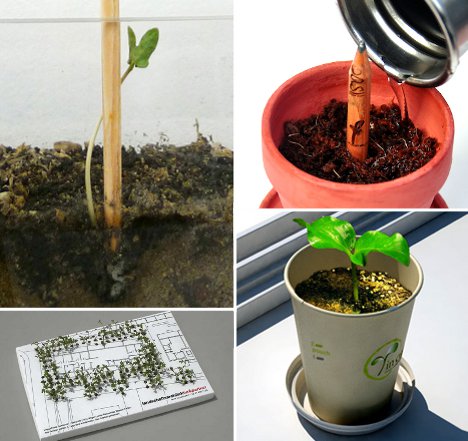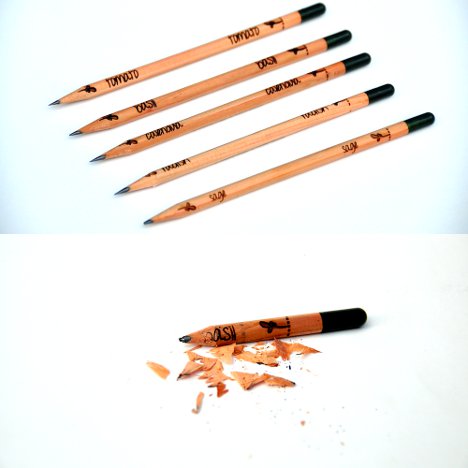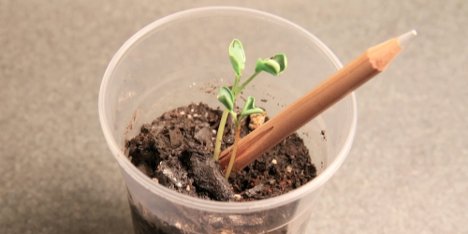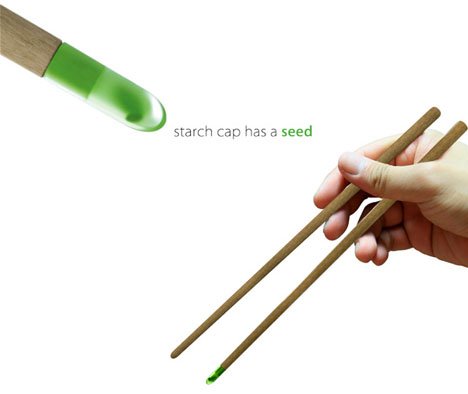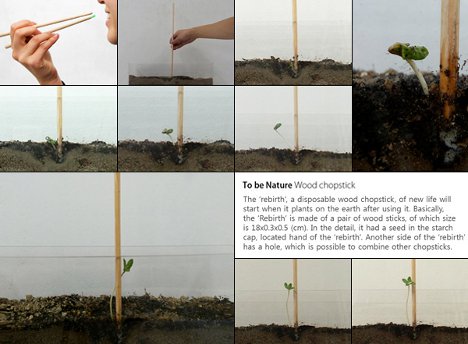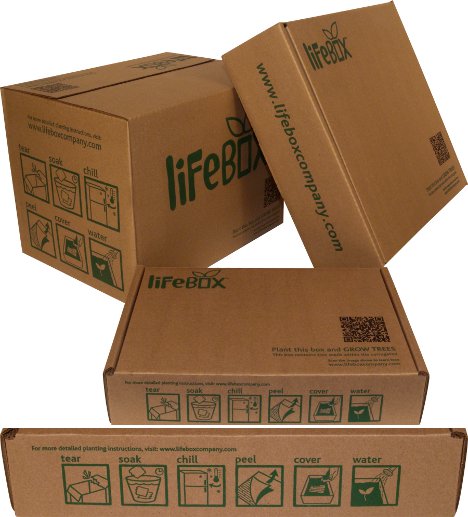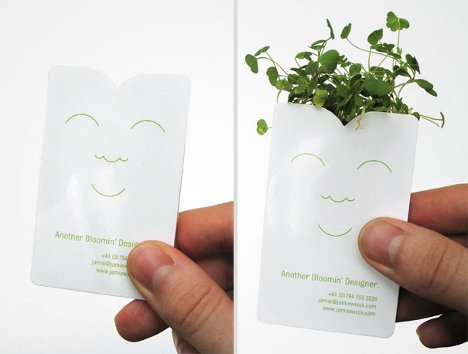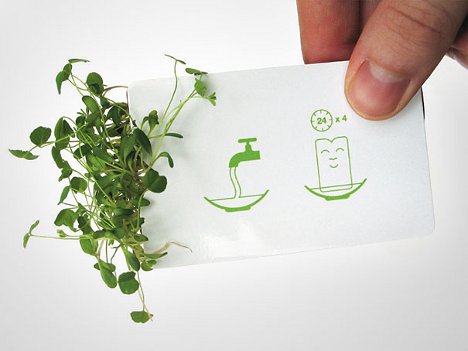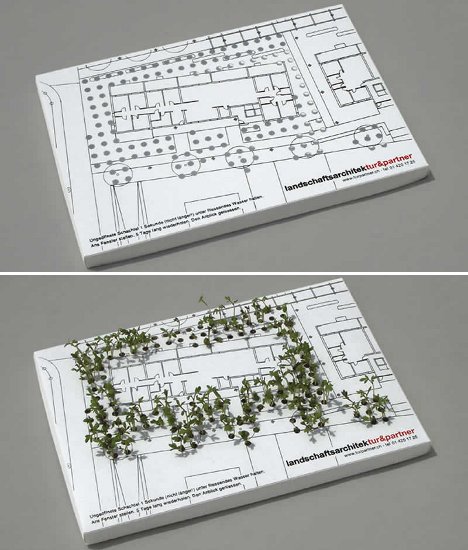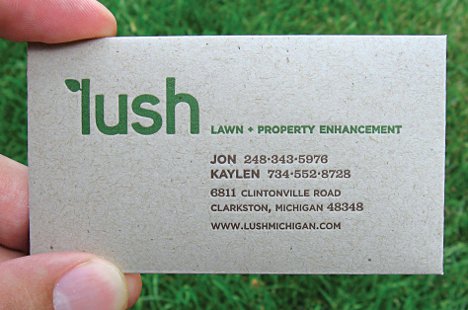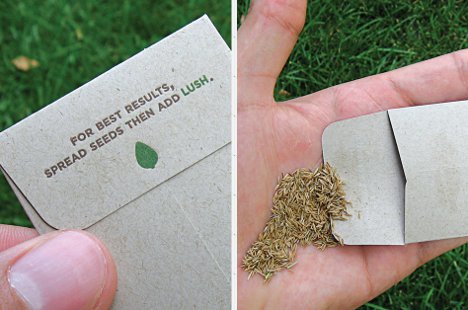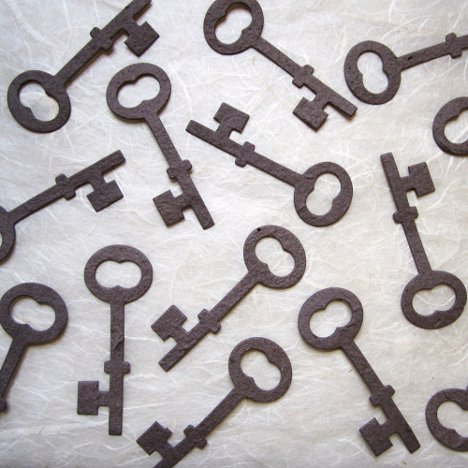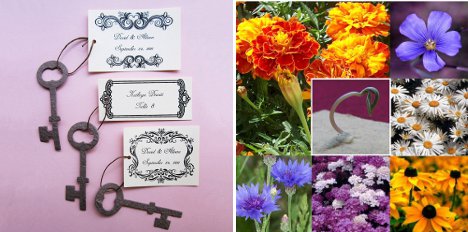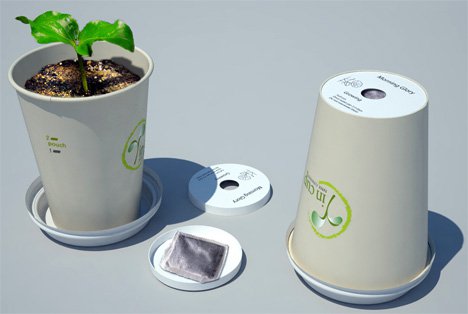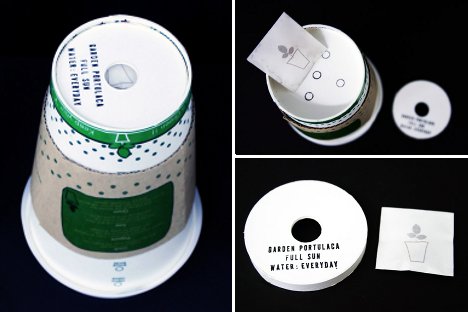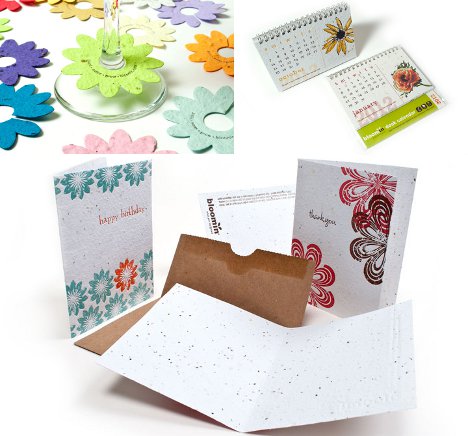Once a product’s primary function has been served, most of us choose to either throw away or recycle whatever is left. An increasing number of products, though, are meant to be reincarnated as beautiful, growing plants. When their first lives are over, these products can be placed into the ground to be reborn.
(images via: Democratech)
A group of MIT design students wondered what would happen if, instead of throwing away their pencil stubs, they could do something constructive with them. Thus the Sprout pencil was born – a pencil that can be used just like any other, but when it becomes too little to use it can be planted in a bit of soil. A small capsule on the end contains a seed that will sprout and grow, providing enjoyment far beyond the initial usefulness of the pencil itself.
(images via: Yanko Design)
The To Be Nature chopstick is a similar concept that contains a seed in a starch capsule at one end. When your meal is over, you can plant the chopstick in soil and water it to activate the seed. The new plant will use the stick as a support as it grows up tall and strong. As intriguing as the concept is, however, it seems like an odd design oversight to place the seed capsule on the end of the chopstick that comes into contact with food.
(images via: Lifebox)
A revolution in packaging, the Life Box turns a serious environmental offender – the cardboard box – into a positive for the environment. After it has carried its cargo to its destination, the box can be torn up and soaked to activate the many seeds embedded in the cardboard. Each Life Box contains enough tree seeds to grow an entire forest ecosystem, with all of the species contained in the boxes approved as non-invasive in the United States.
(images via: Jamie Wieck)
Nearly everyone gives out business cards, so it makes sense to make them memorable and relevant to your line of work. Designer Jamie Wieck came up with this brilliant idea for a sprouting business card. The card is actually an envelope containing alfalfa or watercress seeds. When moistened per the instructions it develops into a lush miniature garden that, as an added humorous touch, doubles as a head of green hair for the face printed on the front of the card.
(images via: BLDGBLOG)
Landscape architects Tur & Partner certainly got plenty of business by handing out these miniature landscape business cards. At first the image on the front looks like simple plans for an outdoor garden, but once you introduce water and sunlight the seeds embedded in the card’s paper begin to sprout, creating a surreal little garden right on the card’s surface.
(images via: Struck)
Advertising creative firm Struck took a slightly different tactic with their business card for lawn company Lush; this business card is actually a tiny envelope containing a handful of grass seeds. There is no need to destroy the business card to grow the grass, which is probably best for long-term exposure. The recipient is encouraged to spread the seeds and then contact the lawn care company in order to care for the brand new ground cover plants.
(images via: RecycledIdeas)
Etsy seller RecycledIdeas has come up with something new and brilliant in the arena of wedding favors: plantable skeleton keys that blossom into beautiful, colorful wildflowers. The keys act as novel decorations and weights for table markers during the reception. After the wedding is over, the seed-impregnated keys go home with guests and into the soil – with some sun and some water, the joy of the wedding day can go on long after the reception is over in the form of cheerful blooms.
(images via: Yanko Design)
Designer Joon Kim thinks that it’s really a shame to throw away disposable cups after the coffee that came in them is all gone. The Y in Cup concept would give the cup a new purpose once your latte has been drained. The bottom of the cup contains a small seed packet along with growing instructions. When you fill the cup with soil and plant the seeds inside, the cup becomes a desktop flower pot. The design would be much more effective if the cup were biodegradable so that it could be simply placed into the soil outside once the plant gets big enough, but as this is only a concept at this point and not an actual product, there is still time for improvements to the idea.
(images via: Bloomin)
Bloomin was a pioneer in the seed paper market, being the first company to introduce a commercial printable, biodegradable, seed-impregnated paper that will actually grow plants when placed into soil and cared for. Their product line includes everything from greeting cards and journals to calendars, coasters, wine glass tags and gift wrap – all with tiny seeds embedded in the paper, just waiting to grow into herbs, vegetables or flowers.
